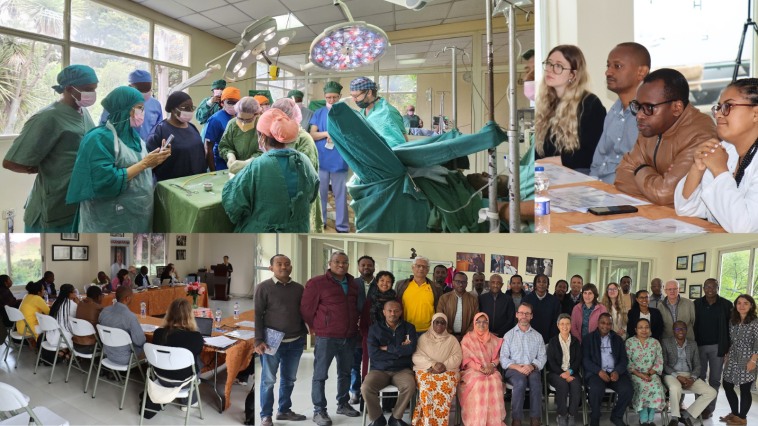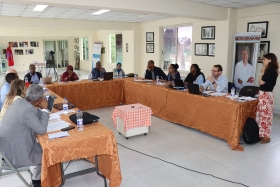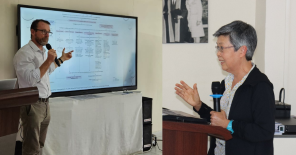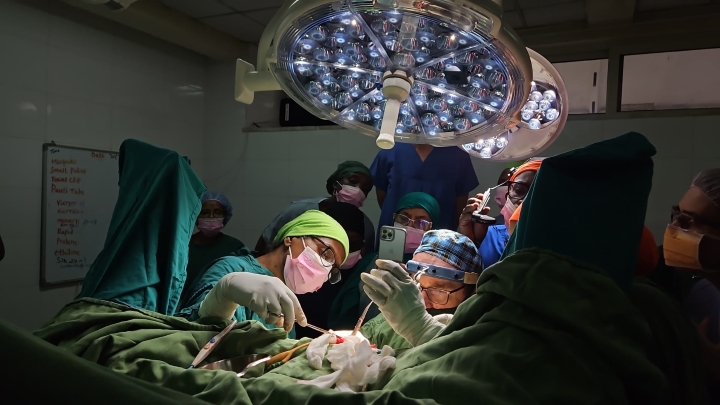Experts reconvene in Addis Ababa Fistula Hospital to advance management of post obstetric fistula repair incontinence (POFRI)

From 28 July to 1 August 2025, global leaders in fistula surgery gathered once again at Addis Ababa Fistula Hospital in Ethiopia for FIGO’s FSTI Expert Advisory Group meeting as well as the second post obstetric fistula repair incontinence (POFRI) workshop.
Expert Advisory Group (EAG) 28–29 July 2025

The week commenced with the Fistula Surgery Training Initiative’s (FSTI) 9th annual Expert Advisory Group (EAG) meeting which consists of the project’s head trainers and expert fistula surgeons.
The two-day gathering focussed on covering key initiative-related activities such as project updates, including progress, challenges and achievements. EAG members also reviewed FSTI key criteria, discussed the future direction, finalised fistula surgery equipment changes and shared their most recent training and coaching experiences.
POFRI Workshop 30 July – 1 August 2025
The second part of the week was spent building on the momentum from the workshop in 2024, with continued, dedicated focus on the persistent challenge of POFRI following vesicovaginal fistula (VVF) repair, a complication affecting many patients.

The workshop, chaired by renowned fistula surgeon and FIGO Trainer, Dr Andrew Browning, started off with participants presenting the outcomes of their 2024 action points. This included the recently published FIGO expert opinion management of post-obstetric fistula repair incontinence for vesicovaginal fistula by corresponding author Prof Judith Goh as well as the results from two study groups which investigated the use of bulking agents and platelet-rich plasma respectively to treat and improve POFRI. Finally, a prospective research design on the prevalence rate of POFRI was presented and many workshop participants eagerly volunteered to contribute data in the future.
Following on from that, each day, the group continued to present and discuss innovative surgical as well as minimally-invasive interventions for POFRI which was complemented by live demonstrations in theatre.

The workshop concluded with plans for future research as well as an in-depth discussion on the way forward to start establishing consensus and to standardise the POFRI care pathway. A position paper, written by workshop participants and due to be published in 2026, will provide further details and guidance.
Presentations from the POFRI workshop in Addis Ababa will soon be available via the Fistula resource hub.